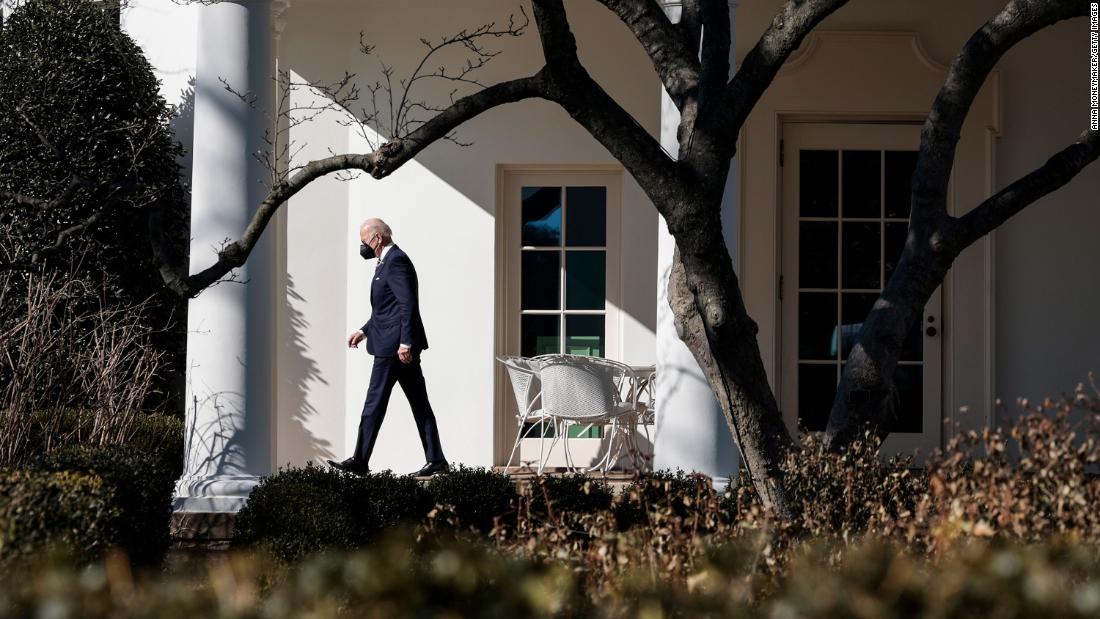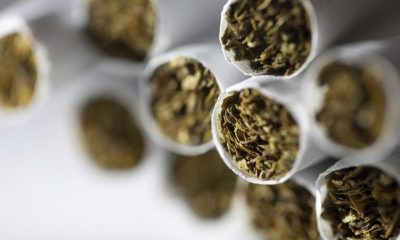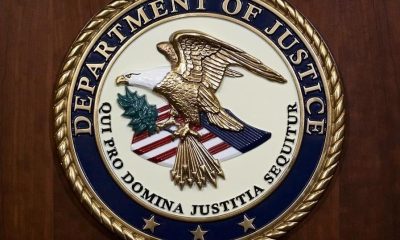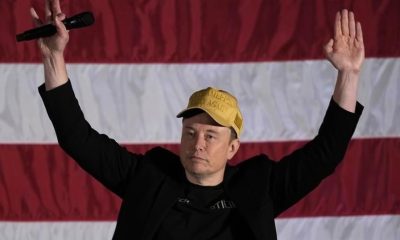Both comments caught advisers off guard, appearing nowhere in his scripted remarks and going well beyond the official government position. His remark about genocide happened inside an ethanol processing plant in Iowa, standing atop a stage covered in straw.
“We’ll let the lawyers decide internationally whether or not it qualifies,” he said on the tarmac of Des Moines International Airport as he got ready to board Air Force One, “but it sure seems that way to me.”
As Biden confronts a war officials believe
could go on for months, he is navigating both the weight of the presidency and its confines. His words are closely parsed for official meaning, even when they are ad-libbed, leading to worries about escalating the crisis.
At the same time, his impulse to visit Ukraine and witness the situation firsthand has been hampered by the bubble that accompanies him everywhere. And domestic concerns are pulling him in other directions, his remit extending well beyond a foreign war — leading to sometimes-discordant scenarios like declaring
genocide inside a biofuel plant, bits of corn dust floating from above.
The dynamic has sometimes created tensions for a President whose response to the conflict has been at times deeply emotional and whose decades of experience in international relations — at the lower levels of senator and vice president — are informing his thinking.
His comment about genocide raised concerns among certain officials that he was getting ahead of the administration’s legal process, and it could be viewed as applying pressure on the officials currently working to make an official determination, according to people familiar with the response. Only a week before he spoke, Biden’s top national security official said the conditions hadn’t been met to call it a genocide, and the State Department has not said yet whether it has found evidence to change that position.
While viewing scenes of atrocities that emerged over the past week, Biden had privately suggested they could be evidence of genocide, according to the person familiar with the matter. Yet that hadn’t been made official by his administration when he labeled it a genocide in public.
It was the latest example of Biden’s long-held political traits of straight talk and empathy being tested in his new, elevated role. His allies and advisers say those characteristics act as a clarifying force for a mostly united Western alliance. And Biden has said privately there is little time to waste in calling out Putin’s actions for what they clearly are.
But some have questioned his impulses and wonder whether a more disciplined approach might work better.
After he said in Iowa it was becoming “clearer and clearer” that genocide was underway in Ukraine, French President Emmanuel Macron raised concerns the escalatory language could hamper attempts at negotiating a settlement to the violence.
“I want to continue to try, as much as I can, to stop this war and rebuild peace. I am not sure that an escalation of rhetoric serves that cause,” Macron said. He had similarly warned against escalation after Biden’s comment in Warsaw that Putin should no longer be in power.
Other world leaders welcomed Biden’s candor. Canadian Prime Minister Justin Trudeau said he thought it was “absolutely right that more and more people” are using the word “genocide” to describe Russia’s attacks in Ukraine. Still, the Canadian leader stopped short of accusing the Kremlin of committing a genocide.
Biden gets out in front of the rest of his administration
Usually, US presidents are wary of applying the “genocide” label before
a lengthy process concludes at the State Department. The designation has only been
applied formally eight times. And after Biden’s remark, officials said they were not yet making an official designation based on what he said.
“There’s certain legal obligations that come with a formal determination of genocide,” Victoria Nuland, the under secretary of state for political affairs, said on CNN the day after Biden’s remarks.
Still, the White House was careful not to downplay the words as just the musings of a private citizen.
“He’s the President and we are here to implement his views,” press secretary Jen Psaki said. “I think we shouldn’t misunderstand who he is and where he stands on the totem pole, which is at the top.”
Ultimately, Biden’s comment about genocide isn’t expected to prompt any immediate changes to US policy toward Ukraine, leading some to wonder what the benefit of saying it was.
“To me, the biggest question is what purpose does it serve? We can have a philosophical, legal debate about whether what the Russians have done to date is technically genocide. They’ve clearly committed any number of acts that fall under the category of war criminality. But then the question is why talk about this in that way? Does this make it easier to bring the war to an end?” said Richard Haass, president of the Council on Foreign Relations.
“I’ll be honest with you, I don’t see the utility of doing this, and don’t get me wrong, it’s not what the Russians are doing,” Haass went on. “It’s not that these are not horrific things. My question now is, how does it serve US strategic and policy purposes? And I’ll be honest with you, I don’t see how it does.”
In the end, Biden’s remark was rooted in the same place as his determination Putin can’t remain in power: The devastating emotion of the conflict, which has played out in hard-to-watch images of atrocities and suffering. Biden himself has lamented that as president, his ability to bear witness to the suffering in Ukraine is limited by the burdensome but necessary trappings of the job.
‘We are not sending the President to Ukraine’
When planning his visit to Poland last month, Biden’s team explored the possibility of crossing over the border to visit Ukraine, which would send an important signal of support. President Volodymyr Zelensky had encouraged Biden to visit Kyiv over and over in a telephone call before Russia’s invasion and had continued to publicly encourage Western leaders to make the trip.
White House officials, discussing the prospect of Biden slipping into Ukraine, weighed both the US footprint such a visit would require — including military and Secret Service assets, along with a retinue of aides and press — as well as what Ukrainian resources would be required.
Ultimately, however, the scale of an American presidential visit was too great, and aides did not give it any serious consideration. Instead, Biden went to a town in southeastern
Poland near the border. When he was there, he lamented his inability to go
the extra 50 miles into Ukraine.“They will not let me, understandably, I guess, cross the border and take a look at what’s going on in Ukraine,” he said.
As a senator and vice president, Biden was a regular visitor to American war zones, including on secret, dark-of-night trips — a fact he mentioned when he was meeting troops inside a stadium in Poland.
“I’ve been in and out of Iraq and Afghanistan about 40 times,” he recalled.
Yet unlike a stop in Iraq or Afghanistan, where US bases and personnel could help secure the airspace, Ukraine is not an American war zone and Biden has steadfastly refused to dispatch US troops inside the country itself.
As Russian troops withdrew from the area around Ukraine, a stream of Western leaders did make it into the country. First was European Commission President Ursula von der Leyen, who stopped to view scenes of atrocities in the town of Bucha before journeying onward to Kyiv.
She was followed by
British Prime Minister Boris Johnson, who walked the streets of the capital with Zelensky,
shaking hands and meeting residents emerging from weeks of bombardment. One woman gave him a ceramic chicken figurine in gratitude. He ate a bowl of soup with Zelensky.
Watching from Washington, Biden couldn’t help but yearn to go himself. Since taking office, he has long maintained that meeting leaders face-to-face is far preferable to talking on the phone, and last month’s last-minute NATO summit in Brussels was his idea. As a politician, his strength has always been in human interactions with ordinary people.
Yet even the logistics of the British leader’s visit — which included planes, trains and helicopters — would prove impossible for an American leader.
Since returning from Europe, Biden has used his public appearances to focus exclusively on domestic issues, scaling up his travel around the country to tout economic progress as his approval ratings continue to sag. Aides say the kitchen-table issues are a priority and his schedule reflects that.
Biden said this week he was still deciding whether to dispatch a senior-level US official to Ukraine. When he jokingly asked a reporter whether they were ready to go, they shot back: “Are you?”
“Yeah,” Biden said.
“He is ready, he’s ready for anything. The man likes fast cars, some aviators, he’s ready to go to Ukraine,” press secretary Jen Psaki said Thursday in an interview with “Pod Save America.”
Still, she was clear there was no prospect of such a trip materializing: “We are not sending the President to Ukraine,” she said.



































